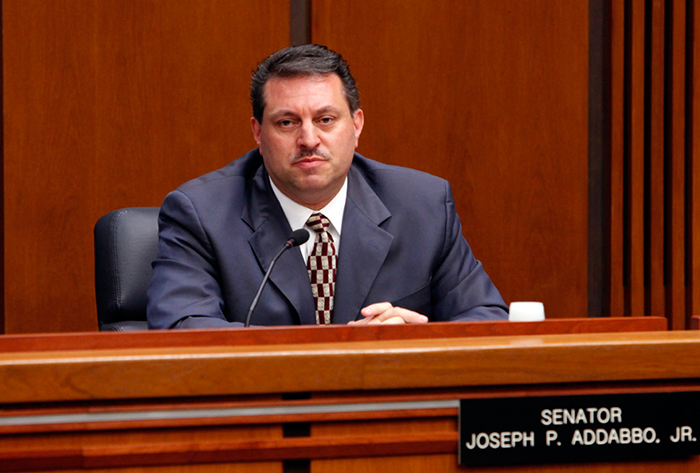File Photo
Sen. Addabbo said the law going into effect in March “holds great potential for reducing food waste in educational institutions while lending an important helping hand to individuals, seniors, families and children who face challenges in getting enough to eat.”
By Forum Staff
A new law set to go into effect in March seeks to encourage school districts, universities and other educational institutions to begin programs where they are able to donate excess, unused and edible food to volunteer organizations engaged in feeding needy New York residents, State Sen. Joe Addabbo, Jr. (D-Howard Beach), a co-sponsor of the measure, noted on Friday.
The legislation requires the State Education Department and Department of Agriculture and Markets to develop voluntary guidelines to move the donation program forward.
“The United States Environmental Protection Agency estimates that food waste makes up approximately 14 percent of solid municipal waste in the nation each year, which translates into about 34 million tons
annually,” said Addabbo, a member of the Senate Environmental Conservation Committee. “This new law holds great potential for reducing food waste in educational institutions while lending an important helping hand to individuals, seniors, families and children who face challenges in getting enough to eat.”
Bad weather, power outages, or other unexpected events may lead to circumstances where food may be wasted when students are not able to come to class or need to leave early, the senator noted.
Additionally, Addabbo is a co-sponsor of legislation that he says would greatly expand donation programs by requiring state and local governments, educational institutions, and food service establishments contracted by these entities to minimize food waste. Under the State and Local Government Food Waste Prevention and Diversion Act, excess food, food scraps and organic waste would be used first – as appropriate – to supply organizations feeding the hungry, and then to provide animal food. Also, organic waste and food scraps would be processed to create products such as bio-diesels, soaps, and agricultural soil amendments including compost.
The senator also cited a 2016 New York City and State Hunger Report prepared by Hunger Free America that found that almost half of all working-age city and state residents who can’t afford sufficient food live in households that are employed. In the five boroughs alone, from 2013 through 2015, 424,307 residents who are food insecure lived in households with at least one person working. During this same time period, about one in five NYC children – or about 429,000 – were experiencing hunger.
“I look forward to tracking the progress and success of the new law encouraging school food donations when it goes into effect in the spring,” Addabbo added. “When the new legislative session begins in January, I will also work to expand opportunities for more innovative methods of reducing food waste, protecting our environment, and addressing the very serious problem of hunger in our communities.”

